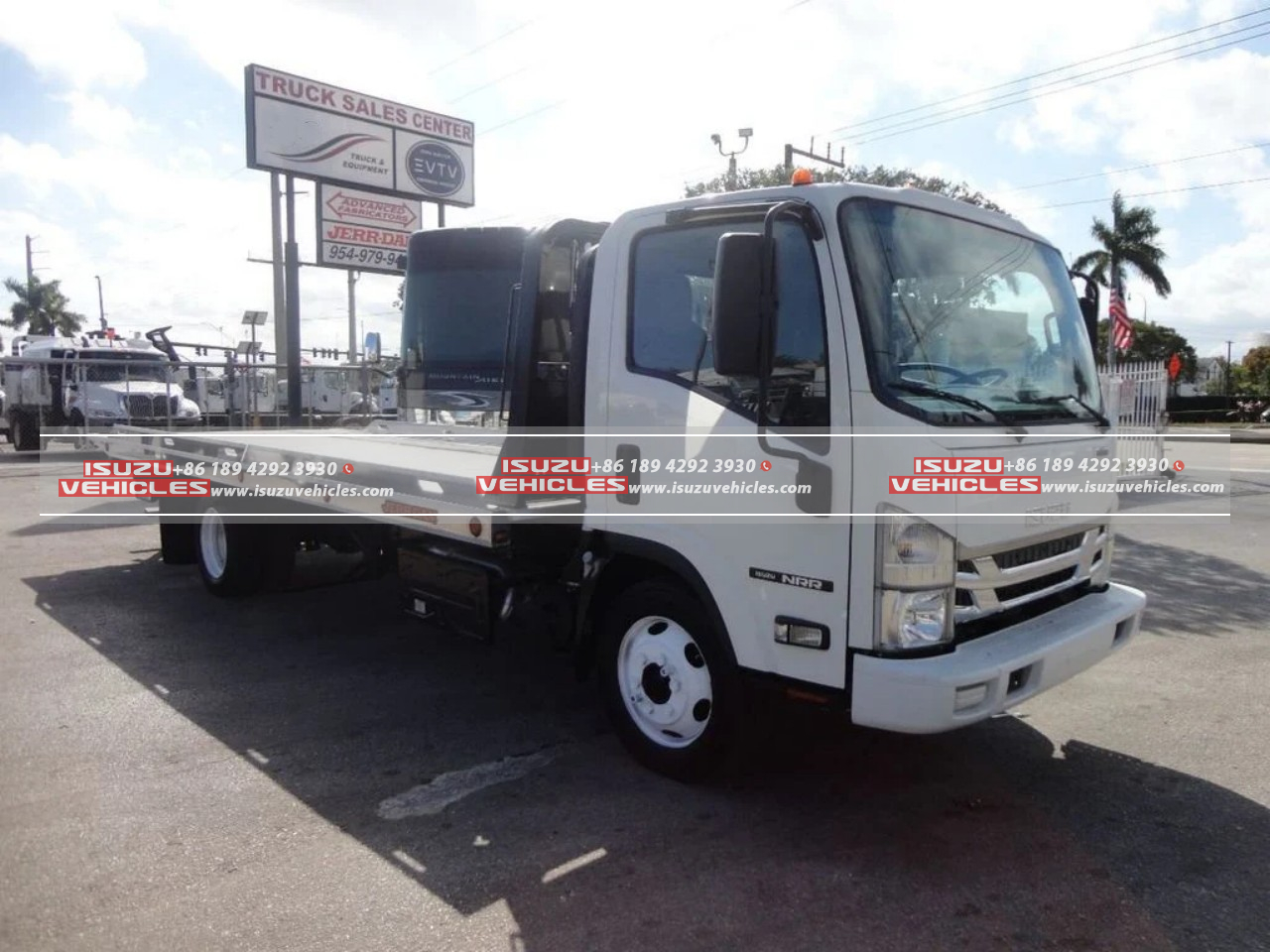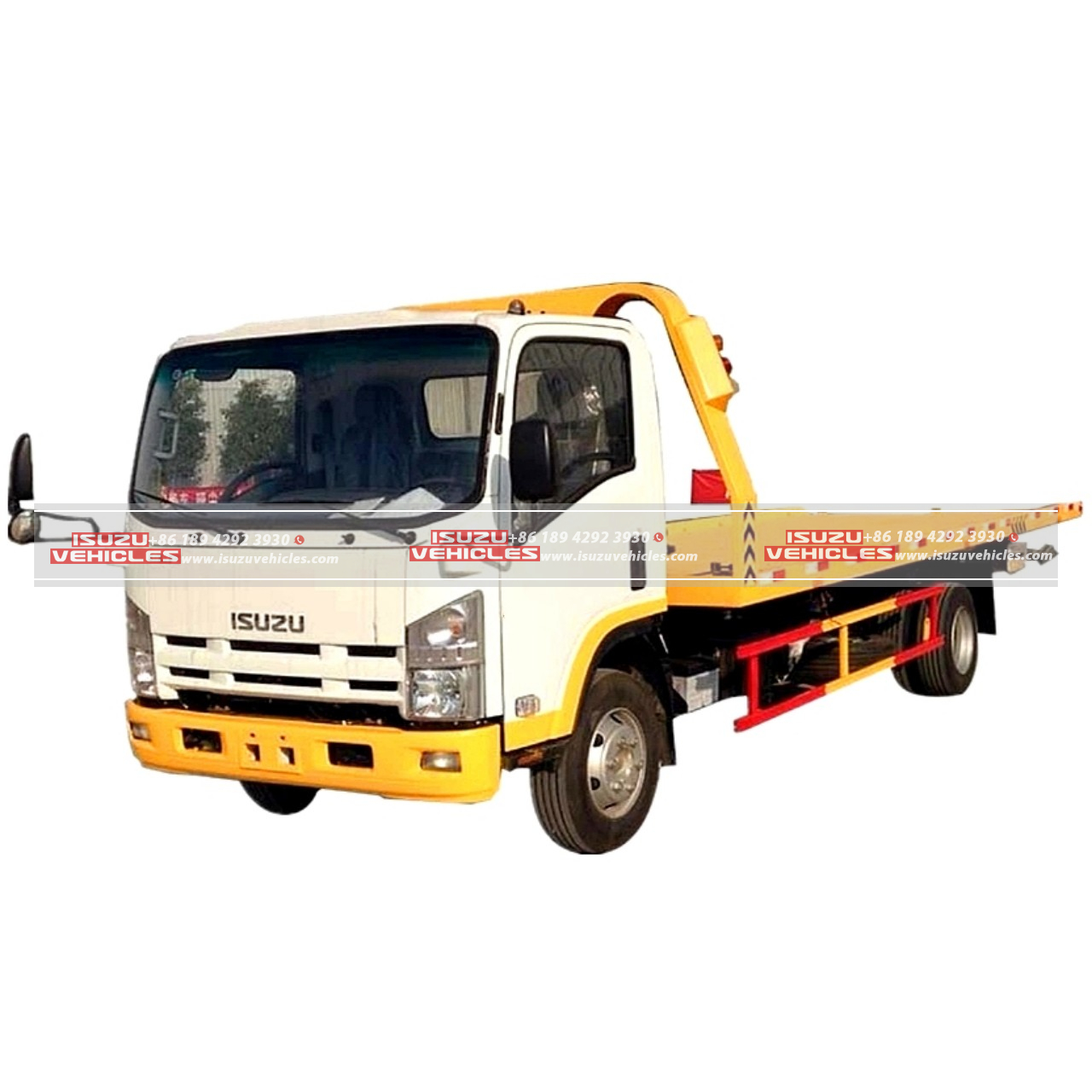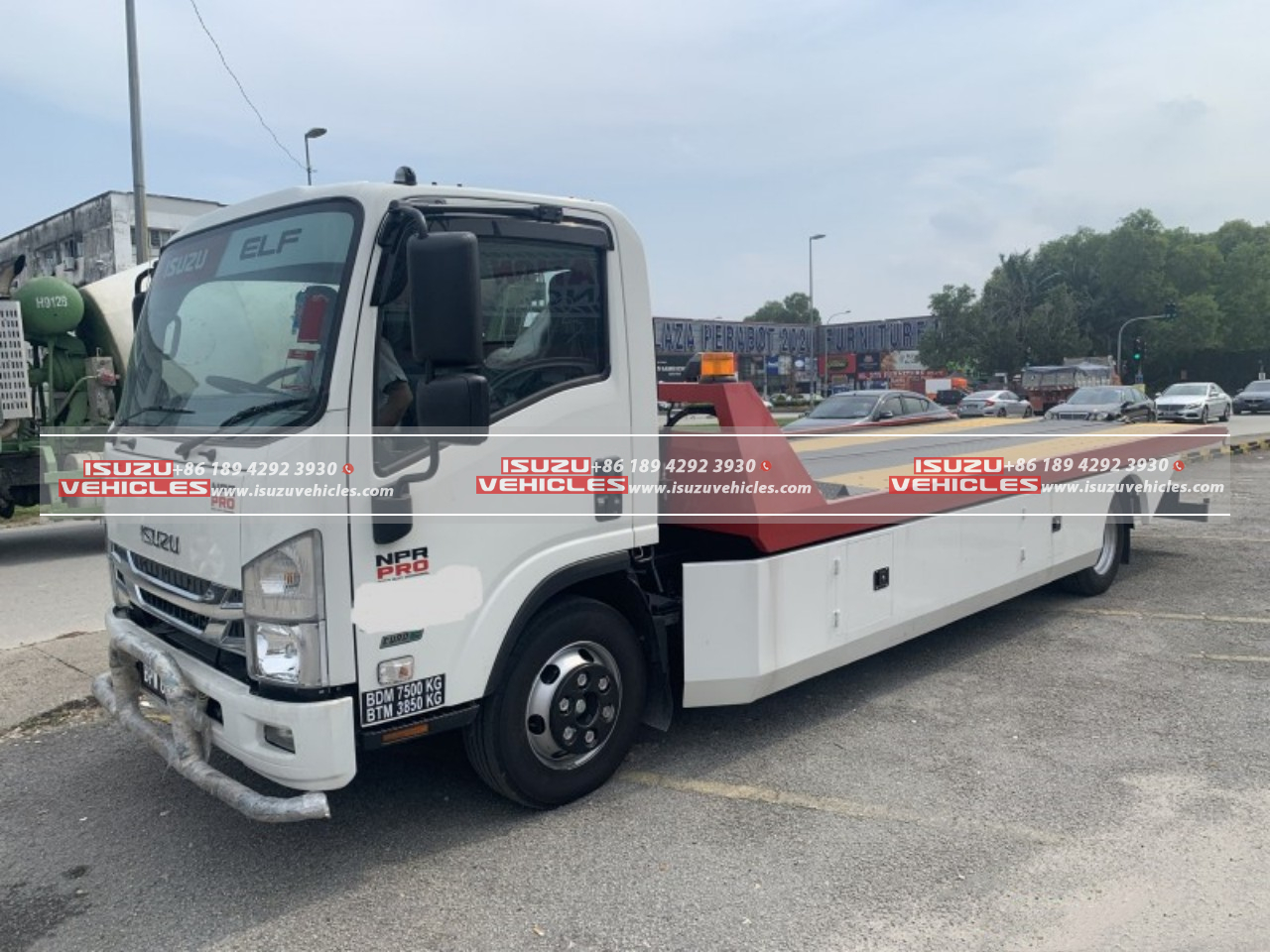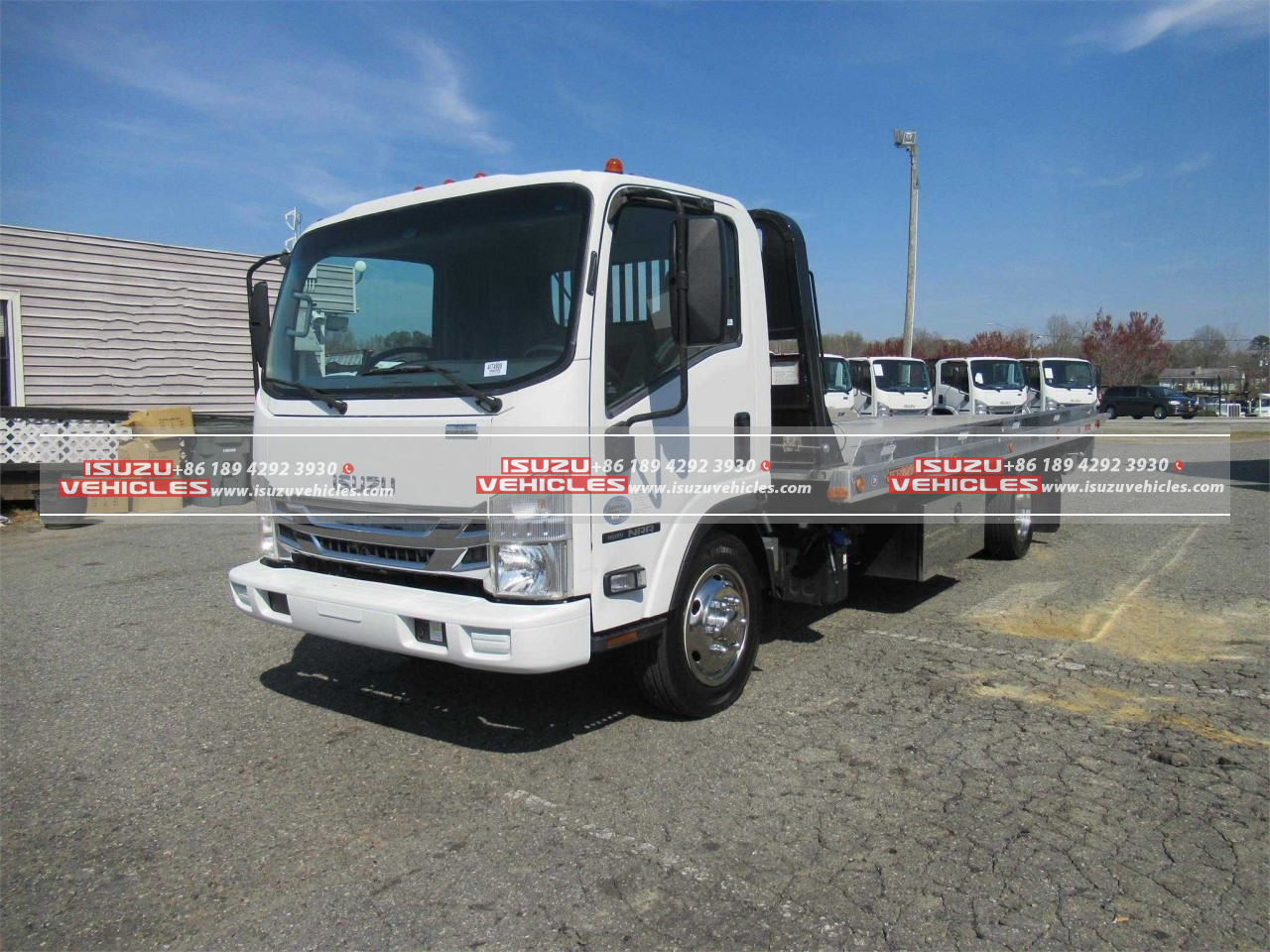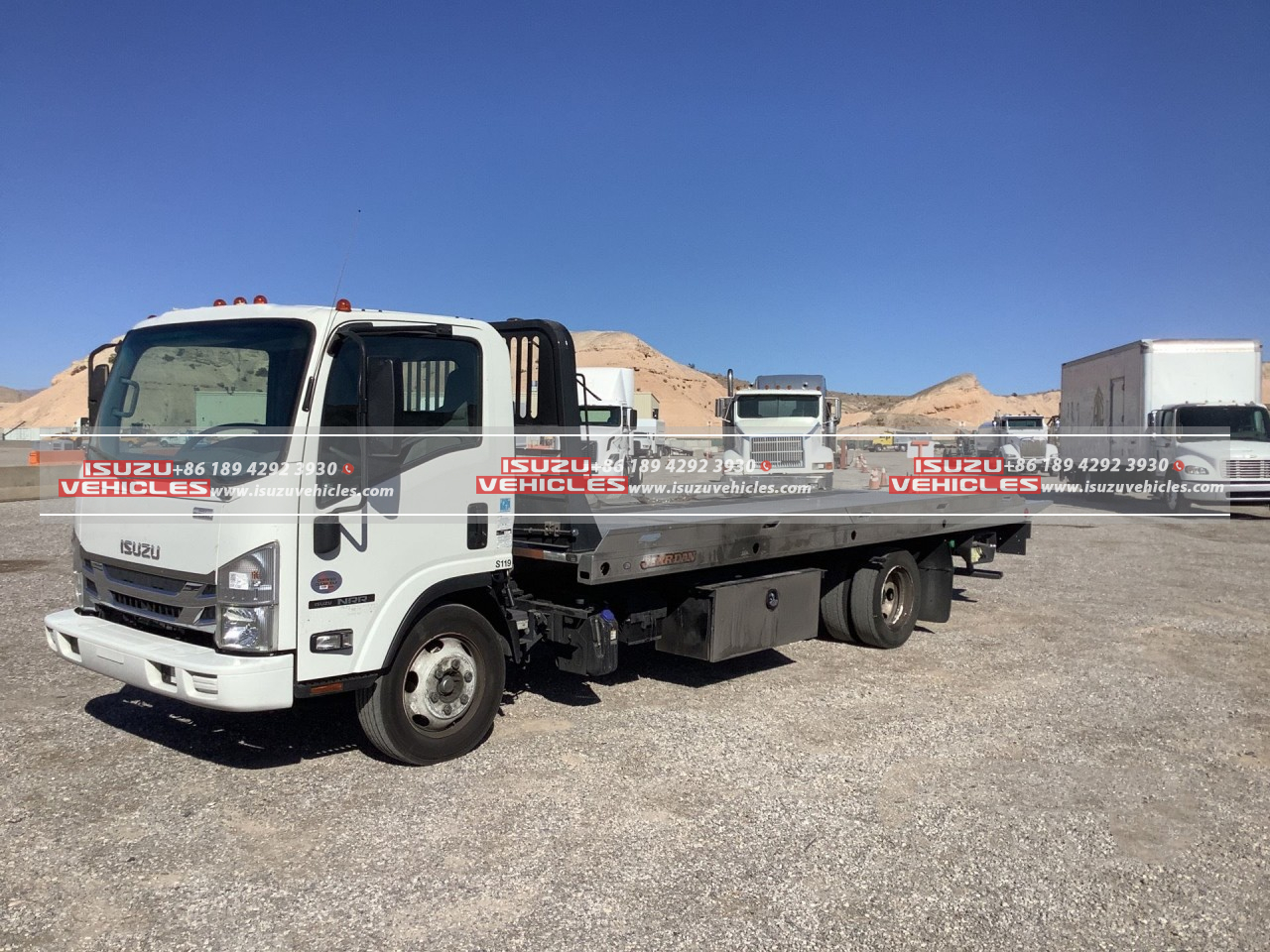Tow trucks play a critical role in roadside assistance and vehicle recovery operations. Ensuring the safety and compliance of these vehicles is paramount to protecting both operators and the public. ISUZU tow trucks are engineered to meet stringent safety standards and regulations, which are essential for their operation. This article delves into five key aspects of safety standards and regulations for ISUZU tow trucks, providing a comprehensive overview.
1. Vehicle Design and Construction
Robust Construction Standards
ISUZU tow trucks are built to withstand the demanding conditions of towing and recovery operations. The construction standards for these trucks include the use of high-strength materials and advanced engineering techniques. This robust construction ensures the structural integrity of the tow truck, which is crucial for safely handling heavy loads and enduring the stresses of towing.
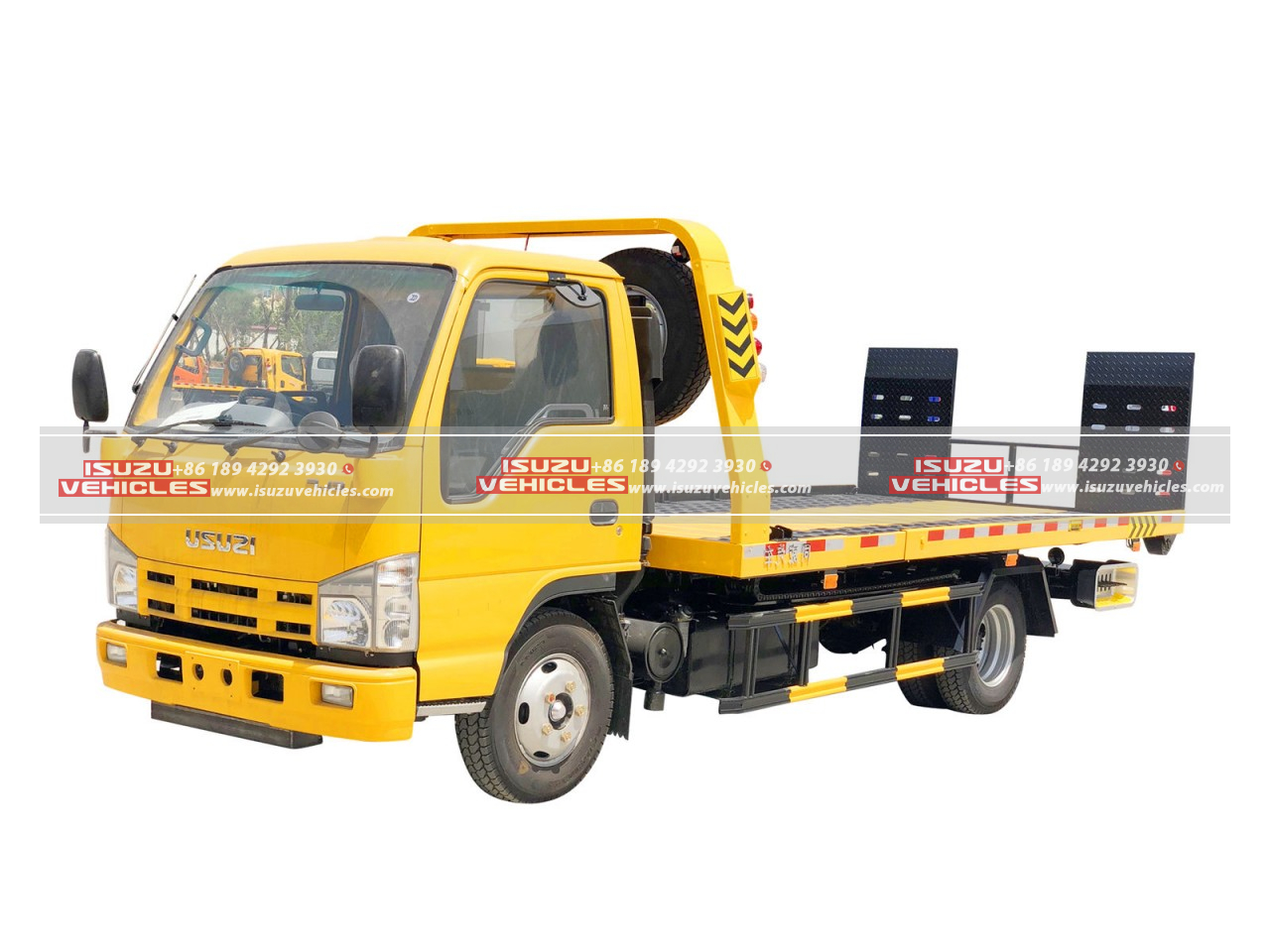
Crashworthiness and Stability
The design of ISUZU tow trucks also focuses on crashworthiness and stability. This includes features such as reinforced cabs, energy-absorbing structures, and stability control systems. These design elements help protect the driver and passengers in the event of a collision and ensure that the tow truck remains stable while operating under load. Meeting these design standards is critical for the overall safety of the vehicle.
2. Towing Equipment and Mechanisms
Certified Towing Equipment
The towing equipment used on ISUZU tow trucks, such as winches, hooks, and lifting arms, must comply with industry standards and certifications. This equipment is rigorously tested to ensure it can handle the specified loads without failure. Using certified towing equipment is essential for preventing accidents caused by equipment malfunctions and ensuring safe towing operations.
Secure Attachment Systems
Proper attachment systems are vital for securing the towed vehicle to the tow truck. ISUZU tow trucks are equipped with advanced attachment mechanisms that ensure a secure connection between the two vehicles. These systems are designed to prevent the towed vehicle from shifting or detaching during transit, which is crucial for maintaining safety on the road. Regular inspection and maintenance of these attachment systems are required to ensure ongoing reliability.
3. Operator Training and Certification
Mandatory Training Programs
Operators of ISUZU tow trucks must undergo comprehensive training programs to ensure they are competent in handling the vehicles and towing equipment. These training programs cover various aspects, including vehicle operation, towing techniques, safety protocols, and emergency response procedures. Proper training is essential for preventing accidents and ensuring that operators can safely perform their duties.
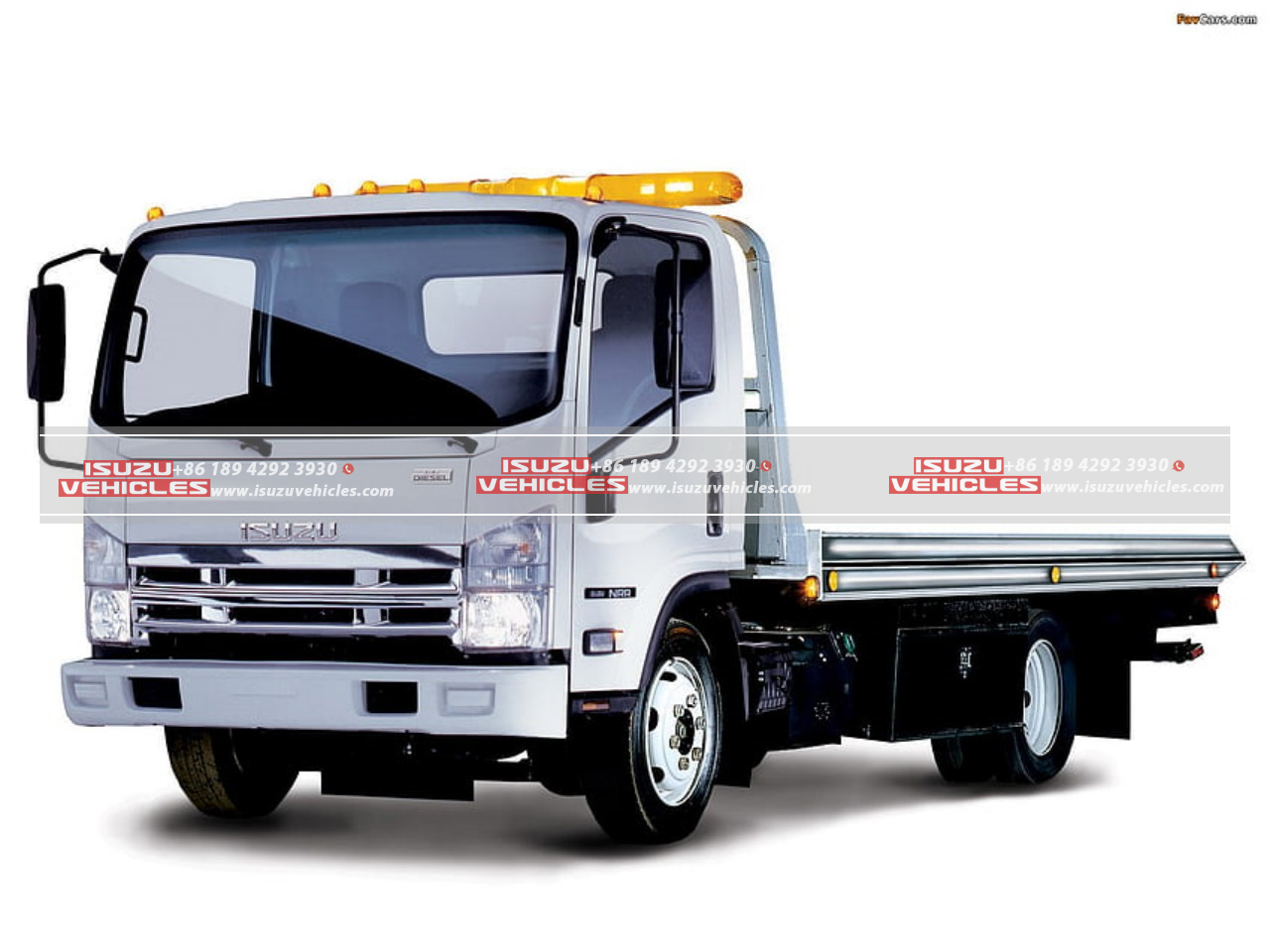
Certification Requirements
In addition to training, tow truck operators are often required to obtain certifications that verify their competency. These certifications may be mandated by local or national regulatory bodies and typically involve both written and practical examinations. Ensuring that operators are certified adds an extra layer of safety and compliance, as it demonstrates that they have met the required standards of knowledge and skill.
4. Regulatory Compliance and Inspections
Adherence to Local and National Regulations
ISUZU tow trucks must comply with a range of local and national regulations governing their operation. These regulations cover aspects such as vehicle dimensions, weight limits, lighting, and signaling requirements. Adherence to these regulations is crucial for legal operation and for ensuring that the tow trucks do not pose a hazard to other road users.
Regular Safety Inspections
Regular safety inspections are a critical component of regulatory compliance. ISUZU tow trucks are subject to periodic inspections to ensure that all safety systems and equipment are functioning correctly. These inspections may be conducted by regulatory authorities or certified inspection agencies. Regular inspections help identify and address potential safety issues before they lead to accidents or breakdowns.
5. Technological Safety Enhancements
Advanced Safety Technologies
ISUZU integrates advanced safety technologies into their tow trucks to enhance operator and public safety. These technologies include anti-lock braking systems (ABS), electronic stability control (ESC), and advanced driver assistance systems (ADAS). These features help prevent accidents by improving vehicle control and providing real-time alerts to operators about potential hazards.
Telematics and Monitoring Systems
Telematics systems are increasingly being used in ISUZU tow trucks to monitor various aspects of vehicle performance and operator behavior. These systems provide real-time data on vehicle speed, location, and mechanical status. By leveraging telematics, fleet managers can ensure that tow trucks are being operated safely and efficiently, and they can quickly respond to any issues that arise. This proactive approach to safety helps maintain high standards and reduces the risk of accidents.
Conclusion
Ensuring the safety of ISUZU tow trucks involves a multifaceted approach that includes robust vehicle design, certified towing equipment, comprehensive operator training, strict regulatory compliance, and the integration of advanced safety technologies. By adhering to these standards and regulations, ISUZU tow trucks are able to operate safely and effectively, protecting both operators and the public. The commitment to safety in every aspect of tow truck design and operation underscores ISUZU’s dedication to producing reliable and secure vehicles for the demanding field of vehicle recovery and roadside assistance.
